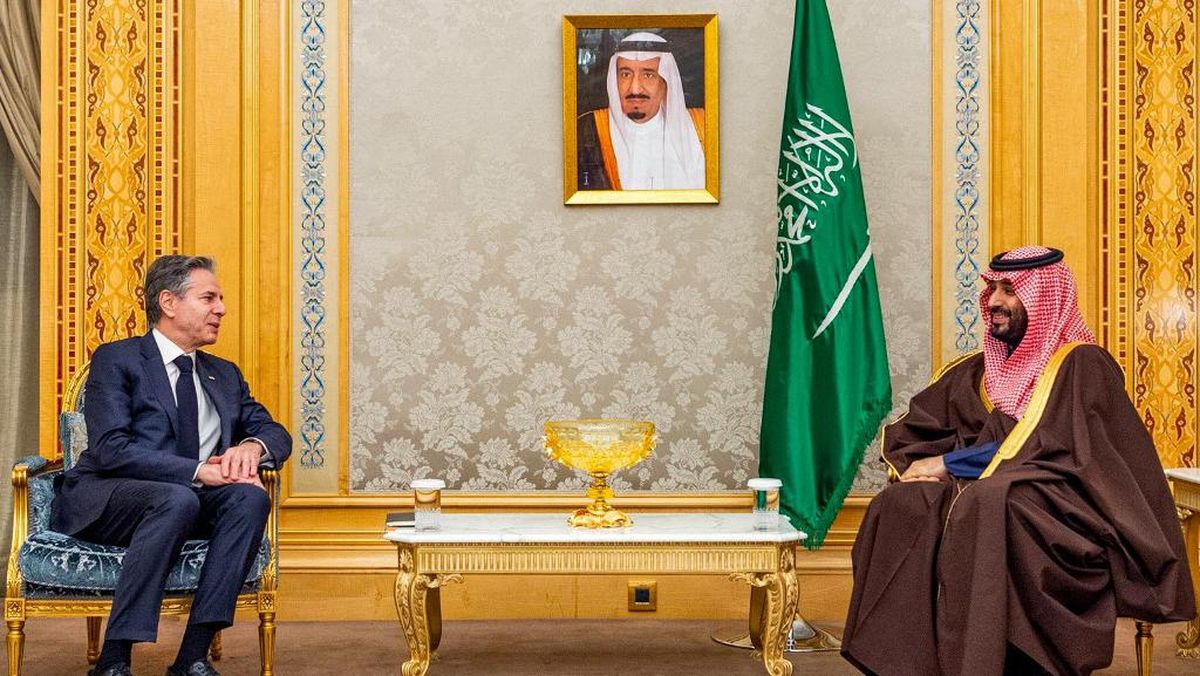
IndependentReport – On February 17, 2025, U.S. Secretary of State Marco Rubio met with Saudi Crown Prince Mohammed bin Salman (MbS) in Riyadh to discuss the future of Gaza and broader regional stability. The meeting came amid growing tensions following President Donald Trump’s controversial proposal to relocate Palestinian residents from Gaza. The discussions between the two leaders highlighted the significance of ongoing diplomatic efforts in the Middle East.
One of the primary topics of the meeting was the situation in Gaza and potential solutions for its long-term governance. Secretary Rubio emphasized the importance of reaching a resolution that contributes to regional security and stability. Both parties reaffirmed their commitment to enforcing a ceasefire in Gaza and ensuring the release of all hostages, including American citizens.
President Trump’s proposal to relocate Palestinian residents from Gaza to neighboring Arab countries has sparked strong reactions across the Arab world. Many regional leaders, including those in Saudi Arabia, are actively developing an alternative plan to address the future of Gaza. The proposed alternative includes rebuilding Gaza’s infrastructure while ensuring Hamas does not hold power in any future governance structures. The discussions also pointed toward a long-term vision that aligns with a two-state solution, a stance that has gained renewed support from key stakeholders in the international community.
“Also Read: Miracle in Toronto, No Casualties in Plane Crash”
In response to the U.S. proposal, Saudi Arabia has taken the lead in forming a regional strategy to reconstruct Gaza without involving Hamas in administrative roles. This approach is intended to create a more stable and self-sufficient Gaza while preventing further hostilities. Saudi Arabia and its regional allies aim to implement policies that emphasize economic development, governance restructuring, and humanitarian relief efforts.
This alternative plan seeks to foster sustainable peace by integrating international support for rebuilding efforts while also addressing security concerns. The goal is to ensure that Gaza residents can rebuild their lives without the risk of renewed conflict and without forced displacement from their homeland.
Beyond the Gaza situation, Secretary Rubio and Crown Prince Mohammed bin Salman discussed a range of other regional issues, including developments in Syria, Lebanon, and maritime security in the Red Sea. Both leaders stressed the importance of maintaining freedom of navigation in critical waterways, given recent security threats in the region.
Additionally, the meeting addressed the growing role of Saudi Arabia as a key mediator in diplomatic efforts, reinforcing its influence in shaping the Middle East’s geopolitical landscape. Saudi Arabia’s efforts to promote stability align with its broader strategic objectives of regional leadership and economic modernization under Vision 2030.
“Also Read: Europe Holds Emergency Meeting as UK Considers Deploying Troops to Ukraine”
Following his discussions in Riyadh, Secretary Rubio is set to continue his Middle Eastern tour with high-level meetings in Israel and Russia. In Tel Aviv, he is expected to meet with Israeli Prime Minister Benjamin Netanyahu to further discuss security cooperation and the U.S. role in ongoing peace efforts. Later, Rubio will travel to Moscow for talks with Russian Foreign Minister Sergei Lavrov, focusing on potential steps to end the conflict in Ukraine and reestablish U.S.-Russia diplomatic relations.
Saudi Arabia’s growing diplomatic involvement underscores its evolving role in international affairs. As it continues to mediate conflicts and propose constructive solutions for Gaza and other regional crises, its partnership with the U.S. remains critical in shaping future developments in the Middle East.
The meeting between Secretary Rubio and Crown Prince Mohammed bin Salman signifies a crucial moment in Middle Eastern diplomacy. With tensions surrounding the future of Gaza and broader regional security concerns, the discussions underscored the necessity for collaborative and pragmatic solutions. As Saudi Arabia leads efforts to find an alternative to the U.S. proposal for Gaza, it remains a pivotal player in regional stability.
The coming weeks will be critical in determining the direction of Middle Eastern peace efforts. As negotiations continue, international stakeholders will closely monitor the evolving dynamics between the U.S., Saudi Arabia, and other key regional actors in shaping the future of Gaza and the broader Middle East.